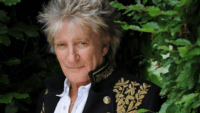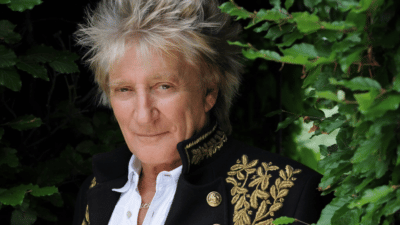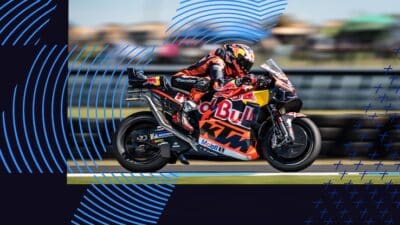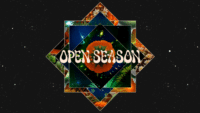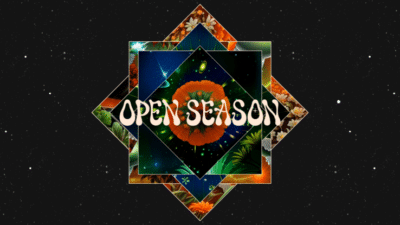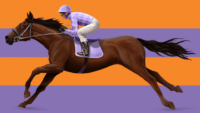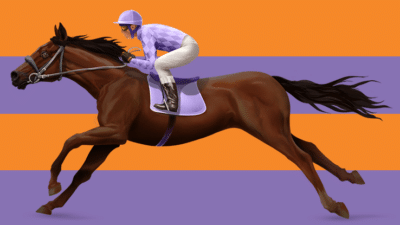Music
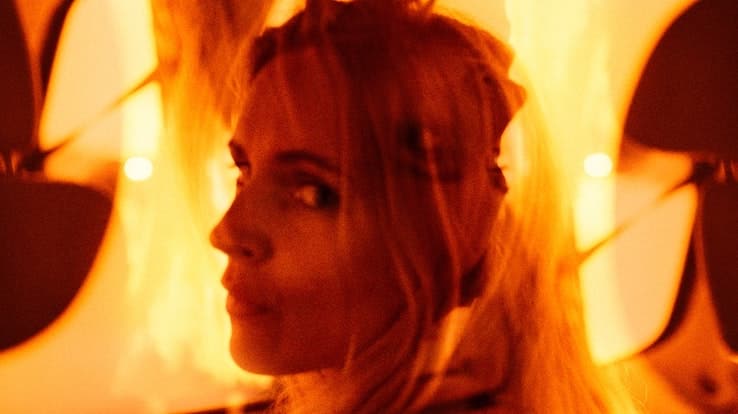
Interview
Agnes Obel on the journey back to touring and returning to Australian stages this October
We caught up with Agnes Obel to deep dive into her journey back to live touring, the new changes in her life, and how she is entering her next creative chapter.
Agnes Obel’s musical catalogue is the sort of dreamy journey that is best explored with headphones on, taking the time to dive into all its beauty and intricacies. But when the Danish-born, Berlin-based singer, songwriter, producer, and multi-instrumentalist transforms her music for the live stage, it takes on an entirely new life.
Obel’s catalogue is full of, what you might describe as, peaceful, beautiful, and vivid musical moments – the type of soundscape to soundtrack a cosy evening – while others are darker and more dramatic, but no less poetic.
On the live stage, it is as if Agnes Obel and her decade-plus-spanning catalogue of music become something completely new – still just as beautiful, as if she is making music with your heartstrings, shaping your emotions – but, when she steps out of her studio, a place where she creates all of her music completely independently, and onto the live stage, where a band of musicians bring their own experiences and musicality and daily life to each of her songs, that something completely new happens.
It is, as she describes in our chat below, how she creates a unique musical experience at every single one of her shows.
Agnes Obel 2022 Australia Tour Dates
- October 11, 2022, – Hollywood Avondale, Auckland NZ
- October 13, 2022, – Melbourne Recital Centre, Melbourne VIC
- October 14, 2022, – City Recital Hall, Sydney NSW
She began playing classical piano at the age of five, alongside rock and jazz at school. At 17, she left high school to study music production and sound engineering. It was here that Obel fell in love with the idea of sculpting her own sounds.
Agnes Obel’s atmospheric soundscape and creative boundaries have expanded with each of her four albums. Her first, Philharmonics (2010) – the album that saw her win five awards at the 2011 Danish Music Awards, including Newcomer Of The Year and Album Of The Year – was the perfect introduction to Obel’s mastery of balancing soundscapes that are both sparse and delicate yet densely powerful.
By the time we get to 2020’s Myopia, her cinematic musical experimentation has expanded greatly. She uses traditional instruments like the celesta, mellotron, piano, and viola, but pitches their sounds up or down so they sound like something else entirely. Her vocal is treated much the same, and is multi-layered until Obel sounds more like a choir than the one-person music making wonder she is.
With inspirations ranging from Erik Satie to Roy Orbison, Claude Debussy to PJ Harvey and Jan Johansson to even Edgar Allan Poe, and a sound that has been described as reminiscent of Kate Bush and Enya, Agnes Obel has well and truly become a household name across Europe.
From her six-times Platinum debut album Philharmonics (2010) to the lingering, haunting Aventine (2013), her concept album about the lack of privacy in the online world, Citizen of Glass (2016), and the deeply introspective Myopia (2020), her piano-driven melodies – that blend classical with pop, folk, rock, electronica, and more – are unmatched.
Here, in Australia, her ethereal vocals, poetic lyrics, and hypnotic soundscapes are well-loved too. This October, she will be returning to our stages for the first time in eight years with a full band of classical musicians in tow.
A few weeks before she began her huge world tour that will eventually bring her back to Australian stages in October, we caught up with Agnes Obel to deep dive into her journey back to live touring, the new changes in her life, and how she is entering her next creative chapter.
We are in the countdown to your upcoming world tour, which starts in Berlin and sees you return to Australia and play your first show in New Zealand before finishing up at the incredible Paris Philharmonic – how are you feeling?
Agnes Obel: “I’m feeling excited. Excited, and curious to see how it’s going to work out. I’m going to tour with a 14-month-old baby, as well, my daughter. I’ve never toured before with a baby and she’s a toddler now.
“I’ve toured every single album, but even compared to those tours, this tour is really long. It’s one leg, two months in one go. We have a little break, and then we go again. Without a baby, this is a long tour, but I’m super excited.
“I’m really curious to hear the music in big rooms again and hear it played live. I’ve been working in my little studio, which is a tiny little room, for the past year, and even while I was pregnant, during the pandemic. I’ve [spent] so [long] in this little cubicle recording. I really want to feel the music that I’m [making’, to see it, in a way, become real and not just inside of my little homemade bubble. I’m really looking forward to that, to see it manifested, and not just an abstract idea in my head.
We are more than a decade on from your debut album, Philharmonics, a record that many fans still hold dear – when preparing for a tour, how do you look on those earlier songs?
“I feel like it’s such a big part of me, the first album. I’m always okay with playing a few songs from Philharmonics. I think to play a whole album with the whole concert just Philharmonics would be hard for me, but to play a few is okay.
“That first album was really songs I’d written even as a teenager. Some of the songs were written in high school, so it’s almost like part of my DNA – it’s a big part of who I am. They work really well with the new material, but I couldn’t play a whole concert because it would feel like I was forced to become myself as a teenager, almost, and I’m not there anymore.”
You released your most recent album, Myopia, in 2020 and have only been able to prepare to tour it now – while also creating new music. How has this process of creation been for you, moving into the next album cycle while also preparing to tour your previous record?
“It’s super strange. I’ve released three albums where you release it in the Fall after you’ve finished it, and then you go on a long tour after that. I’ve never experienced this before, because I’m already now in the process of writing a new album, and then I’m going on a tour while I’m in this writing/recording mindset.
“It’s very strange for me, but on the other hand, I think it’s a creative opportunity to open myself up a little bit in the process. I have to, so I can play some of the new material and I can use the opportunity to play this material with musicians live. I can also use these big rooms. Some of the shows we will play outside, and there’ll be some theatres to play and to try new material in.
“I think I must immerse to create something. What? I don’t know, because I’ve never done it before, but I’m sure it will push me into something new. I’m quite curious to see what will happen with the new material when I start playing it because I’ve never done this before.”
You’re a one-person-project when you’re recording, and now you’re taking all of this incredible new music and bringing a band into the mix. How do you transform your music from the studio solo project into a big band, big venue experience?
“I very often play with classical musicians because I have some strings and I like classical percussion because I can also play vibraphone and mallet instruments.
“I try to find classical musicians who also play and write their own music. That means they have an ear for improvisation. When you’re coming for rock music or pop music or non-classical music, the way you develop music is more like a band. You don’t have it written down on sheets, but in classical music, there’s a completely different way you approach it.
“When you come from pop, rock, or rhythmic music – as we call it in Denmark – and have to play with classical musicians, you have to find the ones who are open to this freer approach. I don’t like that you start playing music and just have it all in sheets or scores, and it’s like, ‘Here, we start. Here, we do this, and then it ends.’
“It has to be more organic and I want you to hear the people who are playing the music in the pieces, as well. I feel like live music becomes interesting when you feel the musicians playing it, and they’re not just perfect musical robots. That means they have to be open to playing in a more improvised way – listening to it and then developing from that. It’s quite a long process when I start playing live. We’ve already rehearsed a lot and even started last year, playing together to just find each other and finding ways into the music.”
Does that mean that each one of your performances becomes its own unique experience?
“Yeah, that’s a whole idea. Also, sometimes some songs will be considerably slower or faster. I like it myself when I go to a concert and you have a sense of the people playing and where they are that day, in that moment, and you can feel they are being affected by the room and the audience.
“It becomes more energetic or more interactive somehow, like the musicians are responding to the audience, the audience responding to musicians, and that becomes a more unique moment. Everything is so perfect these days. I am very curious about the imperfections because that might be the most human element in the music. I can’t say exactly how each concert will be, but I’m pretty sure it will be different from the one the day before.”
This will be your second tour of Australia – what can audiences expect from these upcoming shows?
“I’m playing with a band. There’s two cellists, one is Australian, but he’s living in Berlin. We have a German classical percussionist, who also plays the flute and saxophone. They are an incredible band. I think they’ll be really good, but I can’t say how it’s going to be.
“Also, it will be after we’ve already played almost 40, 45 shows before. My hope is that I will be able to develop the material and I will be able to play some of the new unreleased music, as well, when I come to Australia. At that time, I would have grown my confidence to be able to start playing the new material.
“My partner, Alex, has developed a light design with small cameras on stage. He has some where he puts small, prism stones in front. He called them prisms, and they move in front of the camera as they’re filming everyone on the stage, and that’s then being projected. It’s a very strange and beautiful, slightly psychedelic light design.”
What are you most excited about for these upcoming shows? There are a lot of them, and it’s been a long time in the making.
“I am really excited about playing music again, just the playing. What I long for is the feeling where you’re playing and you forget it. It doesn’t always happen. Sometimes, it happens, and then you’re just lost in the moment, you’re just in what you’re doing. This is what I hope for. I love when it happens.
“There’s so many elements, especially with your own music, where you can sit and think, ‘Oh, this didn’t work, but this has to work. Now, we do this. This is too loud,’ or whatever, but I’m hoping that somehow everything will come together and I can get lost in the music and playing with these incredible musicians. This is what I’m looking forward to.
“It sounds almost like I’m talking about a drug, but it’s been such a long time since I’ve played a show, so I don’t even really know how I’m feeling. I just remember after I did my other tours, when I got home, around 9 o’clock when I would normally play a show, that I would get very awake. In a way, I think I missed this, that the body and the mind and everything comes together and becomes working with time, you are just in the present. You’re not in the future. you’re not in the past. This is the best place to be.”
What do you love about making music? What is it about making and performing music that has kept you coming back for so long?
“I really like writing music and just falling in love with what you’re doing. A new idea could be an instrument, a recording, it’s like I fall into something and think, ‘Whoa, this is nice,’ and then it feels like you’re falling in love because you get energised and high, and you think about it all the time. I always keep it a little bit secret for myself. It’s my little wonderful secret that I listen to all the time. This is what I love about making music.
“Performance side is different, it feels like a healthy challenge because I don’t see myself as a performer-musician. I feel much more like I’m a recording type of musician, but because I am like that, I think it’s really healthy that I go on tour and perform, and play in front of people and play live music and not keep everything under control.
“This is a healthy aspect of doing it for my own creativity, and so I develop and don’t get stuck in my own eccentric ideas of what is good. That’s the challenge in it, but also the challenge of writing new good things. You’re always, in a sense, competing with yourself. You get an idea and then see if you can actually make it. You dream it, ‘I want to make this piece,’ but then you have to see if you actually can do it. That’s a challenge I also like.”
Agnes Obel will tour Australia and New Zealand this October, bringing her ethereal, cinematic soundscapes to Melbourne Recital Centre on Thursday 13 October, City Recital Hall, Sydney on Friday 14 October, and Auckland’s Hollywood Avondale on Tuesday 11 October. Tickets are on sale via Ticketmaster.com.au.
[su_divider top=”no” style=”dashed” divider_color=”#026cdf” link_color=”#1f262d” size=”1″ margin=”5″]
Keep up to date on all the latest music news in Australia at Ticketmaster Discover.




